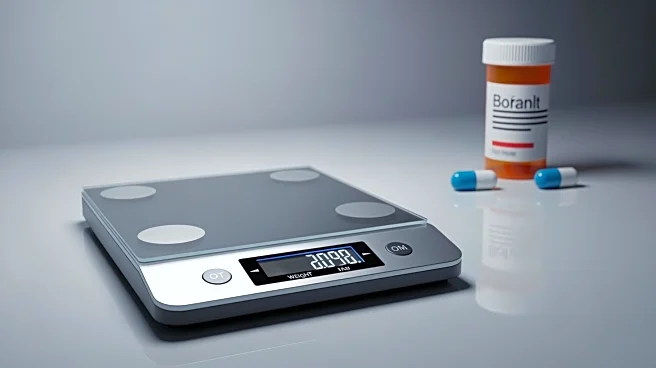What's Happening?
President Donald Trump announced a significant deal aimed at reducing the cost of popular GLP-1 weight loss drugs, Wegovy and Zepbound. The agreement involves pharmaceutical companies Eli Lilly and Novo
Nordisk, who have agreed to sell these drugs at a discounted rate. Currently, these medications have list prices exceeding $1,000 per month, but the new deal could lower out-of-pocket costs to between $50 and $350, depending on dosage and insurance coverage. The initiative is part of Trump's 'most favored nation' strategy to align U.S. drug prices with those in other developed countries. The administration plans to make direct-to-consumer pricing available by the end of the year through the TrumpRx platform, with Medicare coverage expected by mid-next year.
Why It's Important?
This development is crucial as it addresses the affordability and accessibility of weight loss medications for millions of Americans. The high cost of these drugs has been a barrier for many, especially those whose insurance does not cover them. By reducing prices, the deal could expand access to treatments that are essential for individuals struggling with obesity and related health conditions. However, experts have raised concerns about the clarity of the plan and its immediate benefits, as Medicare currently does not cover drugs solely for weight loss. The deal also highlights ongoing efforts to reform drug pricing in the U.S., a significant issue in healthcare policy.
What's Next?
The administration expects the new pricing to be available on the TrumpRx site by the end of the year, with Medicare coverage following by mid-next year. The deal includes a pilot program to enable Medicare coverage for weight loss drugs, although details remain sparse. Additionally, the administration is set to finalize new prices for 15 drugs under the Inflation Reduction Act by November 30. The pharmaceutical companies involved will receive relief from pharmaceutical tariffs for three years, which could further impact drug pricing strategies.
Beyond the Headlines
The deal could have broader implications for healthcare policy and pharmaceutical pricing in the U.S. It may set a precedent for future negotiations between the government and drug manufacturers, potentially leading to more affordable healthcare options. The initiative also reflects ongoing debates about the role of government in regulating drug prices and the balance between market forces and public health needs.









